While exploring Japan in 2016, Parisian photographer Romain Veillon discovered the eerily deserted “Western Village” amusement park, themed around 1800s America.
Veillon’s photographs of the Western Village are unsettling shots of a neglected theme park. But for the French photographer, it’s not about being scared – or creating creepy photographs.
“Exploring these places is like traveling in the past,” Veillon tells CNN Travel. “It is something incredible to get lost in there and imagine what could have been the life of the inhabitants and what might have happened when it was full of life.”
Every abandoned place tells a story, he adds.
Wandering around a deserted spot, your mind brims with questions – and the fact these questions are often unanswerable makes the place even more intriguing, as you try to fill the gaps.
“Each story will be different from one another, and that’s what I love,” Veillon tells CNN Travel.
Former life
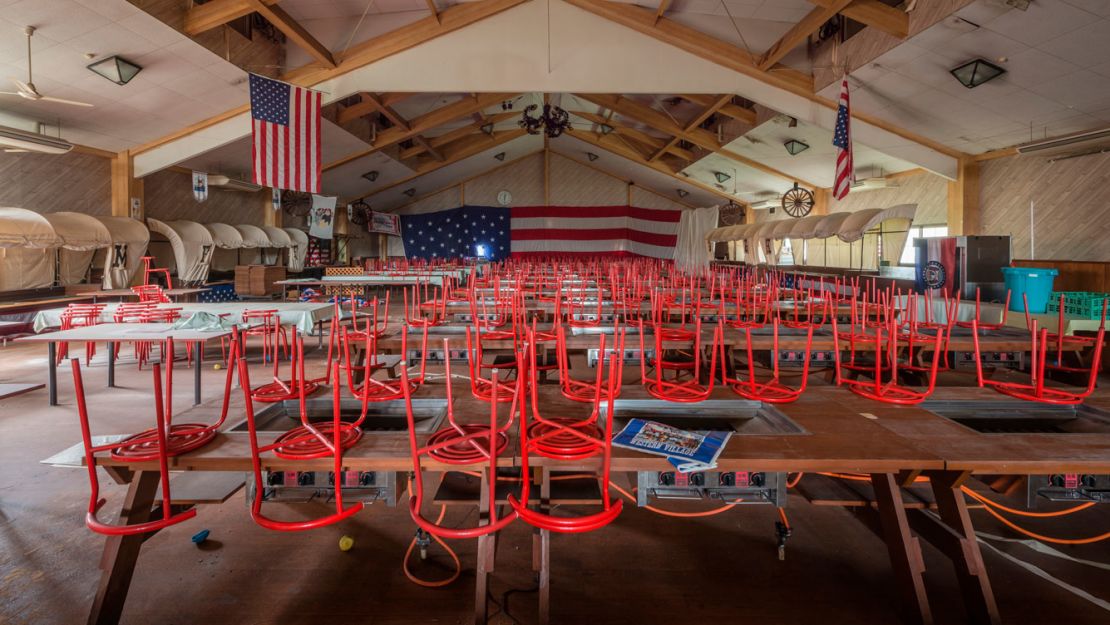
While traveling Japan, Veillon visited a couple of abandoned theme parks, including Nara Dreamland – a failed amusement park that took on a post-apocalyptic vibe in its later years. It was finally demolished in 2016.
Veillon spoke to CNN Style about his experiences at Nara in 2017.
The Western Village, however, is still standing. Built in 1975, it’s been abandoned since 2007.
“Since then, it became famous for photographers and explorers who love to get lost in time in this incredible out of time location,” says Veillon.
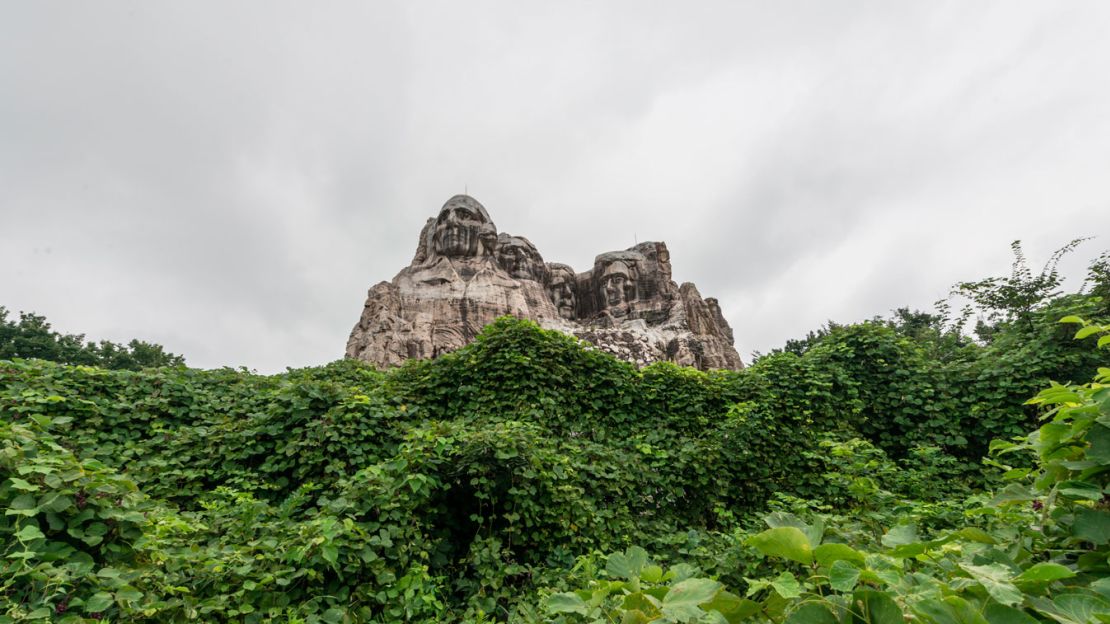
As well as saloon-style attractions and amusement arcades, the Western Village had a real-life Mount Rushmore replica, which Veillon says was part of a $27 million investment.
“They wanted it to be the symbol of the park that could be seen on the surrounding roads,” he says.
Gradually the park fell into disarray, unable to compete with Disneyland or Universal Studios.
During his visit, Veillon spent several hours wandering the park and surveying its state: “You have time to think with no rush, and also the time to photograph the place to show what you think of being there and how you translate it,” he says.
“We were lucky, it was absolutely empty when we explored the Western Village.”
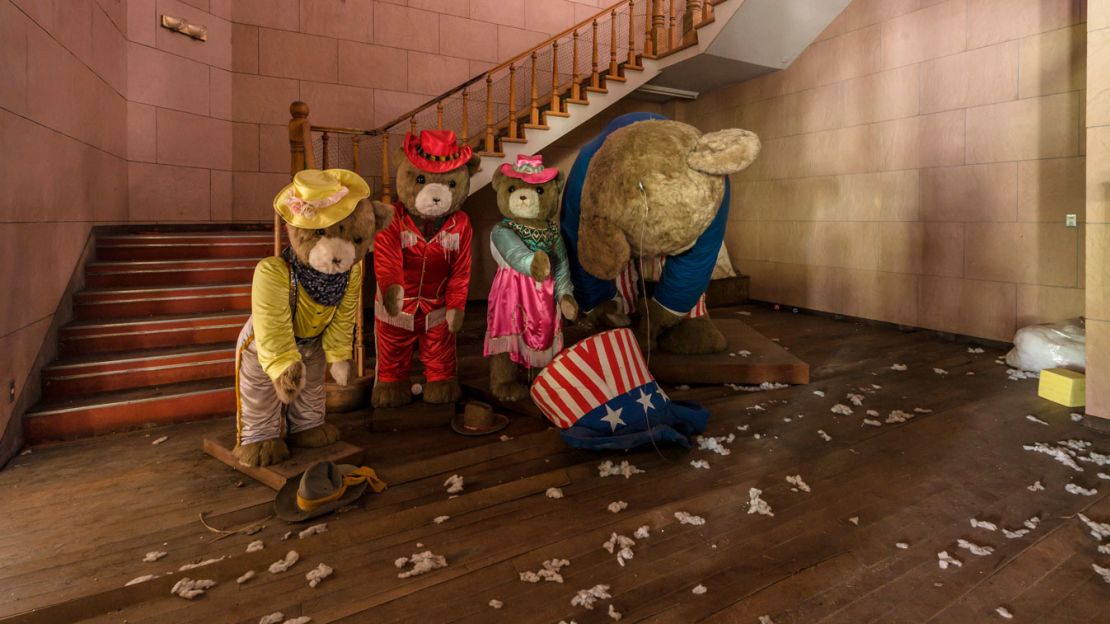
One of the eeriest aspects of the park is that it’s still home to automatons and teddy bears – these forgotten, already quite creepy, robots take on a nightmarish feel when seen in such dilapidated surroundings.
“It was also unreal to see all these robots left everywhere […] you had the impression of being on the set of a sci-fi movie!” says Veillon.
The photographer was also struck by the resemblance to popular American sci-fi series “Westworld” – which takes place at a Western-themed theme park and turns Western tropes on their heads thanks to a science fiction twist.
“Peaceful and unreal”
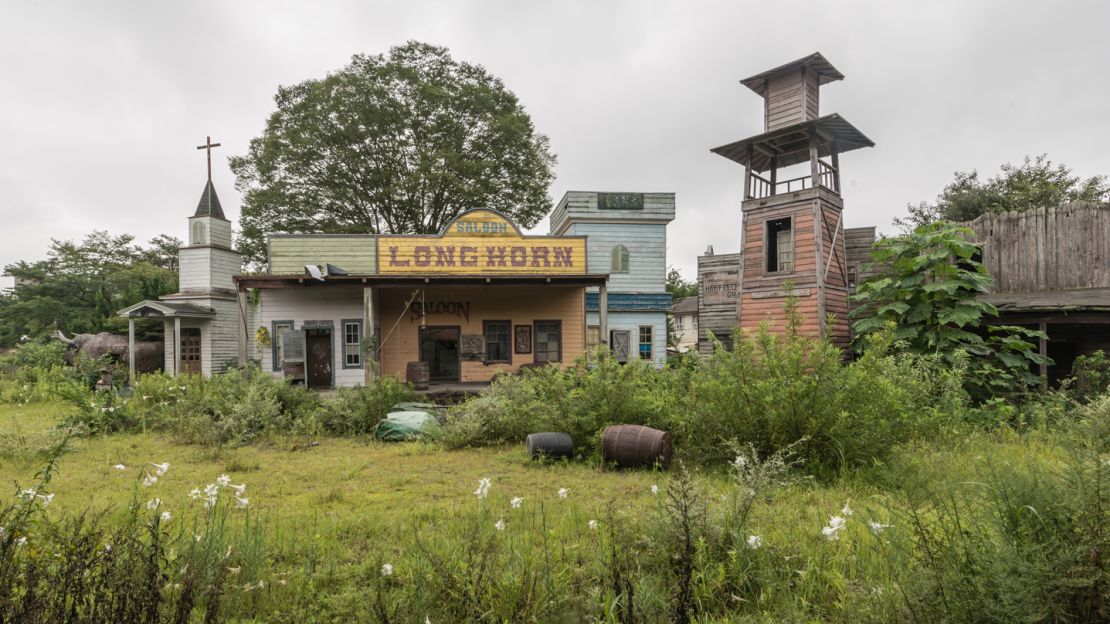
Veillon insists he wasn’t scared wandering the park: “I know a lot of people love to say [it] was an eerie place with a strange atmosphere, but it wasn’t the case for me,” he says.
“It was very peaceful and very unreal,” he adds. “Peaceful because when you visit Japan, there are many people everywhere and in one instant you arrive in an abandoned theme park all alone, and you first enjoy being by yourself.”
He compares the experience of exploring an abandoned spot as akin to time traveling or “being alone in a forgotten museum.”
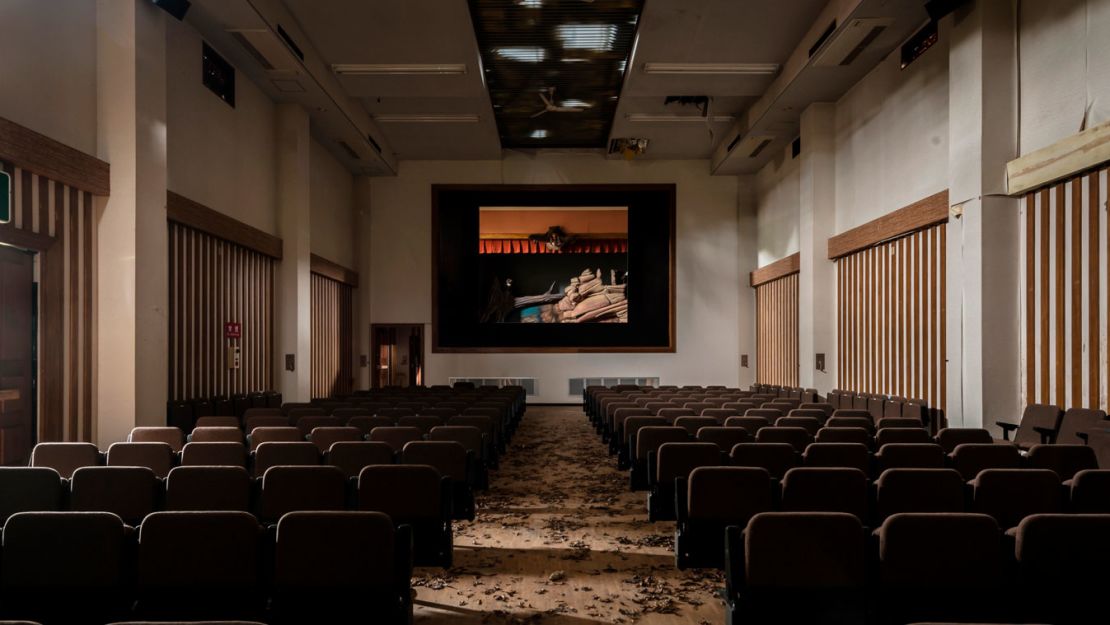
Not everyone approves of photographing abandoned places – the legality of it can be uncertain, and some feel that “ruin porn,” as it’s sometimes nicknamed, is unsavory.
The more popular a spot becomes for ruin photographers, the more security is increased and the future of the park comes into question.
Veillon’s unsure of what the future holds for the Western Village:
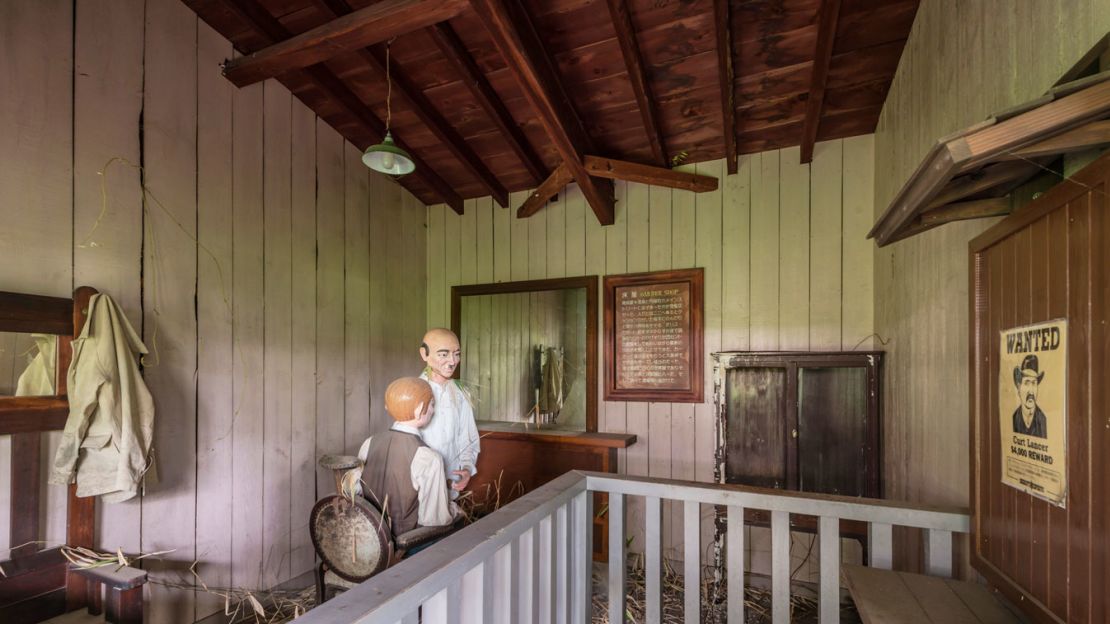
“I heard there have been changes lately, they closed all the building and cut all the vegetation,” says Veillon. “So, I think it means some news is coming, I just hope it won’t get destroyed in the future.”
For Veillon, exploring abandoned spots remains a fulfilling exercise. He’s even published a book, “Ask the Dust,” charting his abandoned photography and posts regular updates on his explorations on his Instagram account.
“Succeeding in showing some beauty emerging from this chaos is also very rewarding,” he says.
Besides, he sees himself as a traveler first and foremost – and his photography isn’t limited to abandoned places.
“What I love most I think is traveling, discovering new areas, people and customs,” says Veillon






![<strong>Not creepy: </strong>So what was it like to visit? Veillon says it wasn't as creepy as you might think. "I know a lot of people love to say [it] was an eerie place with a strange atmosphere, but it wasn't the case for me," he says.](https://media.cnn.com/api/v1/images/stellar/prod/181009153751-romain-veillon-japanese-theme-park-3.jpg?q=w_1349,h_758,x_0,y_0,c_fill/h_447)


![<strong>Sci-fi feeling: </strong>Eerily, the theme park is also still home to creepy automatons and unnerving teddies. "It was also unreal to see all these robots left everywhere [...] you had the impression of being on the set of a sci-fi movie!" says Veillon.<br />](https://media.cnn.com/api/v1/images/stellar/prod/181009154137-romain-veillon-japanese-theme-park-9.jpg?q=w_1348,h_758,x_0,y_0,c_fill/h_447)









